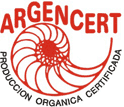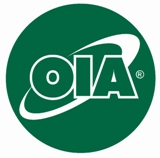Communiqué de Presse
Brussels, 20 November 2007
Agriculture: Health Check to streamline Common Agricultural Policy and address new challenges
The European Commission today unveiled its blueprint for streamlining and further modernising the European Union's Common Agricultural Policy. The so-called 'Health Check' of the CAP will build on the approach which began with the 2003 reforms, improve the way the policy operates based on the experience gathered since 2003 and make it fit for the new challenges and opportunities in an EU of 27 Member States in 2007. The reforms have modernised the CAP, but the Health Check represents a perfect opportunity to take the policy review further. It will ask three main questions: how to make the direct aid system more effective and simpler; how to make market support instruments, originally conceived for a Community of Six, relevant in the world we live in now; and how to confront new challenges, from climate change, to biofuels, water management and the protection of biodiversity. Today's Communication is designed to kick off a wide-ranging six-month consultation. Next spring, the Commission will return with legislative proposals, which it hopes will be adopted by agriculture ministers by the end of 2008 and could come into effect immediately. During 2007 and 2008 the Commission will develop its approach to the budgetary review 2008/2009. The Health Check constitutes a preparatory action within this framework, without prejudging the outcome of this review. It fine-tunes the 2003 reforms and contributes to the discussion on future priorities in the field of agriculture.
Mariann Fischer Boel, Commissioner for Agriculture and Rural Development, commented: "Does the fact that we are conducting a Health Check imply that the patient is sick? Certainly not: but it's quite normal for perfectly healthy people to visit their doctor to see whether they need to do anything different to ensure they stay in good shape. In the same way, we need to look at whether we need to adjust the CAP for an EU of 27 and a rapidly changing world. The changes I propose will make a real difference for farmers, consumers and taxpayers."
Measures suggested:
Making the Single Payment Scheme simpler and more efficient
The Communication raises ideas including:
- moving away from payments based on historical receipts towards a "flatter rate" system.
- increasing the rate of decoupling in those countries which opted in a number of farm sectors to maintain the link between subsidy and production, although coupled support may still play a role in regions where production is small-scale but of particular economic or environmental importance.
- gradually reducing the support level as overall payments to big farmers increase, starting from a level of, for example, €100,000 per year. This would have to differentiate between multiple-owner farms with many workers and single-owner farms with just a few.
- increasing the amount of land a farmer has to own before he qualifies for EU support from the current level of 0.3 hectares.
- reviewing the Cross Compliance standards which farmers are obliged to respect to receive their support from Brussels. This could mean stripping out unnecessary obligations, but also adding new ones to deal with new challenges like improving water management and mitigating climate change.
Adjusting market support instruments to make them relevant for an EU of 27 in 2007
The Communication asks:
- should intervention revert to its original purpose as a real safety net – particularly as market prices today are in such good shape?
- could intervention for most cereals be set at zero while maintaining intervention for a single cereal (bread-making wheat)?
- should set-aside not be abolished, while finding new ways of preserving the environmental benefits it has brought?
- milk quotas are already programmed to disappear in 2015, but should there not be a gradual increase in quotas between now and then to allow a 'soft landing' for the sector? This must look at possible measures to help dairy farmers in those regions of the EU – like mountain areas – which depend heavily on dairy production.
Responding to new challenges:
The Communication looks at how agricultural policy can respond to the new challenges and opportunities facing EU agriculture.
These include: managing risk, fighting climate change, managing water more effectively, making the most of the opportunities offered by bioenergy and preserving biodiversity.
Climate change and water management objectives could be met through Cross Compliance.
There should be incentives to improve action in these areas but this will cost money.
The best way to finance the necessary new measures is through Rural Development policy.
The Communication proposes increasing the rate of 'modulation', i.e. the reduction of direct payments to all farms receiving more than €5,000 per year and the transfer of the money into the Rural Development budget.
This would be increased gradually from 5 percent now to 13 percent in 2013.
It must also be examined whether the energy crop premium is still necessary given new incentives for biofuel production such as the compulsory bioenergy targets and high prices.
More information:
















